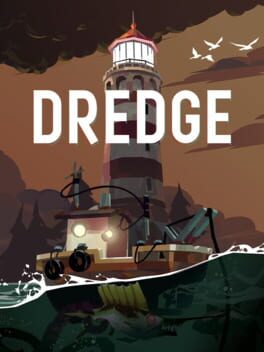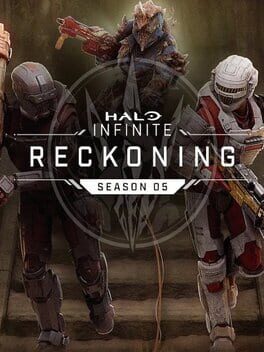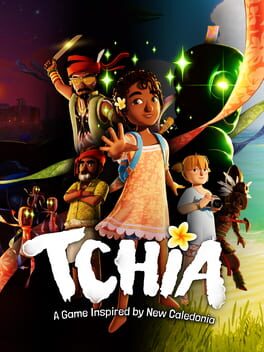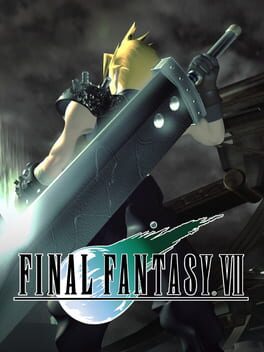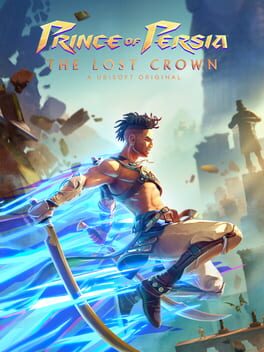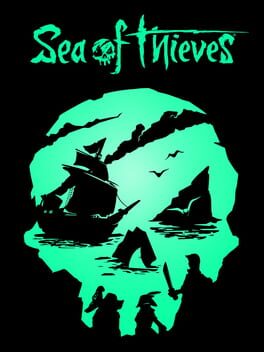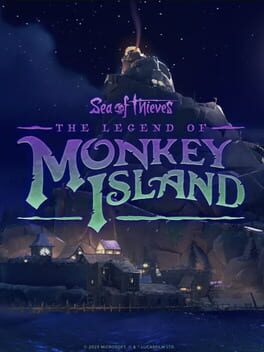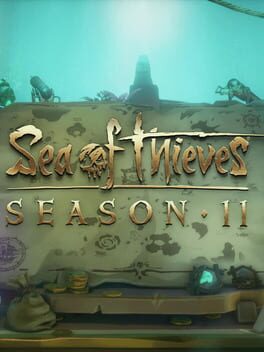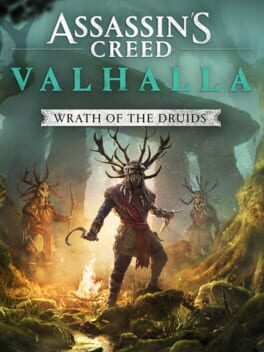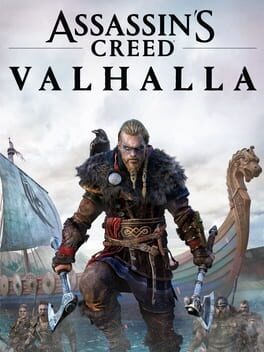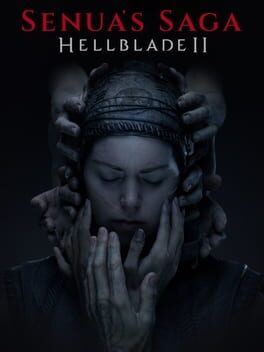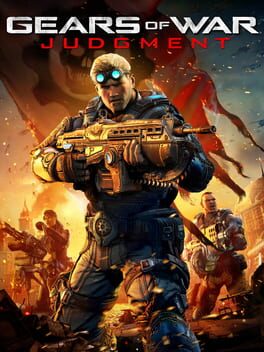ARW3
BACKER
2023
Since the great "Winter Update" Halo Infinite has been firing on all cylinders. Forge continues to provide a plethora of diverse, creative and competitive experiences to enjoy. However, where Halo Infinite continues to shine and separate itself from prior Halo games is the robust incorporation of these experiences into matchmaking. As it stands, there are probably well over 80 unique maps in Halo Infinite. The sandbox continues to expand with the likes of the "Bandit EVO" and new Repair Field equipment. Firefight has made a triumphant return and is accompanied by the unprecedented creative power of 343i's Enemy AI Forge Toolkit. The "live service" aspect of Halo Infinite is thriving at the moment. There has been meaningful, calculated roll-outs of content to keep the season fresh since its launch. Halo 3 Refueled, Combined Arms, Firefight's Mid-Season Update, and the upcoming Holiday event all flesh out this season. Season 5 marks a maturation point for Infinite as a live service game, one that I hope continues to shine.
343i has a roadmap of interesting items to continue to explore, including a Match Composer, cross-core shoulder pieces, new net code built from the ground up, and other items. I personally would love to see the return of Griffball, now that the Hammer feels particularly great. Additionally, Bomb Assault medals have been spotted in the game's code, which is also encouraging to see. More Forge map implementation into BTB and Squad Battle would also be welcomed additions in the seasons ahead.
343i has a roadmap of interesting items to continue to explore, including a Match Composer, cross-core shoulder pieces, new net code built from the ground up, and other items. I personally would love to see the return of Griffball, now that the Hammer feels particularly great. Additionally, Bomb Assault medals have been spotted in the game's code, which is also encouraging to see. More Forge map implementation into BTB and Squad Battle would also be welcomed additions in the seasons ahead.
2023
Tchia is a beautiful tribute to the tiny nation of New Caledonia. The developers have built a gorgeous world that is bustling with personality and quirks attentive to New Caledonian culture. The music and use of native language were aspects I found to be particularly effective. Unfortunately, I did find the overall pace of Tchia dragged at times. In many ways, this charming world is undermined by bloat and haphazardly scattered map markers or upgrade economy. Similarly, the strong and heartfelt story Tchia tells is held back by redundancies in the gameplay loop and sequences that are dragged out without purpose. Traversal in Tchia is also laborious. The game has limited fast travel locations and frequently tasks players with lengthy travel, but does not provide ample means for efficient transportation.
Tchia is an impactful game that I would recommend without hesitation, but the initially charming gameplay loop overstays its welcome. This game truly wears its heart on its sleeve, and is an inspiring tribute to a pulchritudinous landscape and endearing culture.
Tchia is an impactful game that I would recommend without hesitation, but the initially charming gameplay loop overstays its welcome. This game truly wears its heart on its sleeve, and is an inspiring tribute to a pulchritudinous landscape and endearing culture.
2023
Lies of P is both a surprising and outstanding effort. Round8 has brought forward the Bloodborne formula perfectly reimagined for 2023, with many exciting additions that distinguish it as something uniquely their own. Although level design is fairly linear, there are clever scenarios for returning to old levels. Mob design might have unfortunately taken too much homage to Bloodborne, but elsewhere Lies of P really shines. There is a great level of customization in "how" you play, with evolved gameplay mechanics including the legion arm, weapon customization, and smart build-crafting. QoL was not an afterthought, with aspects of Lies of P being infinitely more intuitive than that of most Souls games. Utilizing open-domain liberties to set this world in a dystopian version of Pinnochio was an inspired decision. The story remained intriguing and shockingly easy to follow along when compared to its fellow souls-likes. Lies of P is set to get a sequel, as has already been announced, and given the truly unpredictable ending this game treated players to... I am beyond excited to see it.
2012
It took me a long time to get to FF7, but I was absolutely floored by this game. The ambition on display here, surely unprecedented for its time, is outstanding. Fantastic customization by way of the materia system and deep RPG elements, a notably memorable cast, and an exceedingly well realized world all contribute to an overall package that feels pretty damned special. Better late than never!
Brilliantly designed metroidvania with a high degree of polish. It excels in its interesting combat, brilliant traversal mechanics, worthwhile exploration, and strong art direction. The narrative certainly takes a back seat here, although a slew of interesting lore can be obtained by way of lengthily written collectibles. The actual delivery of the story teeters on being a bit cheesy at times, but it is overall serviceable. Puzzles found in Mount Qaf are well-integrated with the stellar platforming mechanics, so they added extra flare onto side quests that weren't particularly interesting from a story perspective.
Prince of Persia: The Lost Crown is an excellent metroidvania that should be enjoyed by any fans of the genre. It should also be commended for its own unique combat, traversal, progression and vibrant art styling.
Prince of Persia: The Lost Crown is an excellent metroidvania that should be enjoyed by any fans of the genre. It should also be commended for its own unique combat, traversal, progression and vibrant art styling.
2018
One of the most innovative, sand-box driven multiplayer experiences I have ever encountered. Unique, artful, dynamic, charming and a joy with friends. Although core tasks might seem repetitive at a surface level, the world invariably lends countering dynamism through every session.
If you can get past the risk of grieving from unfriendly pirates, Sea of Thieves shines as a beautiful open world sandbox for you and your friends to embark on voyages permeating stunning art direction, satisfying progression, and endless shenanigans.
If you can get past the risk of grieving from unfriendly pirates, Sea of Thieves shines as a beautiful open world sandbox for you and your friends to embark on voyages permeating stunning art direction, satisfying progression, and endless shenanigans.
A wonderful ode to a nostalgic franchise for many. The Legend of Monkey Island DLC is more substantial than I initially thought, bringing to life what was essentially full-length puzzle game, running me some 8 hours in length at least. It's clever, charming and is bolstered by its reverence to the source material. The familiar faces here are well voice acted and animated with the endearing charm Sea of Thieves clearly prides itself on. Although a bit long in the tooth in some parts... this root-beer glorifying, quip laden, insult-sword-fighting romp is worth your time if a "3D point and click adventure" sounds like something you'd fancy.
Receiving the Monkey Island theme as a reward shanty for doing all the DLC's commendations was a wonderful bonus :)
Receiving the Monkey Island theme as a reward shanty for doing all the DLC's commendations was a wonderful bonus :)
2024
This game absolutely rules, when you can play it. Looking past the abysmal server issues at launch, likely attributable to an unpredictably enormous debut, this game delivers. It is bombastic and has a polished gameplay loop. It is hilarious in its incessant parody of militaristic expendability and feverous patriotism. Most critically, it delivers emergent gameplay moments in spades.
Although fun in solo play, it is much better to engage with an outstandingly cooperative community of strangers or your friends when delivering managed democracy in Helldivers II. The game's dynamism is amplified by the presence of other players. Team kills, coordinated airstrikes, team reloads and a hug on the battlefield all color the cooperative experience.
There is a shocking amount of gameplay diversity that derives from a robust ordinance ("strategem") system and a good spread of mission designs. Whether it be the hectic nests of a Terminid planet or hordes of Automatons marching towards you out of a jungle's tree-line, there is a filmic nature to nearly every encounter. In my 35+ hours in game (with other hours of my 46 total in servers queues), there were some hysterical exploits of the physics-system and harrowing escapes from certain doom that had us laughing or cheering for hours on end. There is irresistible charm in the parody at play here, whether it be a rag dolling player flying through the sky yelling "LIBERTYYYY" or the cheeky combat tips you get between missions. There are many such examples. Add in some crisp shooting, both 1st and 3rd person, and you have a hell of an experience here. Truly, taking out alien and robotic hordes with your pals has never been so damned cool.
Although fun in solo play, it is much better to engage with an outstandingly cooperative community of strangers or your friends when delivering managed democracy in Helldivers II. The game's dynamism is amplified by the presence of other players. Team kills, coordinated airstrikes, team reloads and a hug on the battlefield all color the cooperative experience.
There is a shocking amount of gameplay diversity that derives from a robust ordinance ("strategem") system and a good spread of mission designs. Whether it be the hectic nests of a Terminid planet or hordes of Automatons marching towards you out of a jungle's tree-line, there is a filmic nature to nearly every encounter. In my 35+ hours in game (with other hours of my 46 total in servers queues), there were some hysterical exploits of the physics-system and harrowing escapes from certain doom that had us laughing or cheering for hours on end. There is irresistible charm in the parody at play here, whether it be a rag dolling player flying through the sky yelling "LIBERTYYYY" or the cheeky combat tips you get between missions. There are many such examples. Add in some crisp shooting, both 1st and 3rd person, and you have a hell of an experience here. Truly, taking out alien and robotic hordes with your pals has never been so damned cool.
A decent addition to Eivor's story, providing more of AC Valhalla's core gameplay loop without too much new variation. In fact, some aspects of the campaign are repetitive in that they mirror activities that push the base-game's campaign forward. It tells a serviceable tale set in an interesting period of Irish history, with clever incorporation of notable historic figures. 9th Century Ireland is beautifully brought to life in "Wrath of the Druids," from the Giant's Causeway to Dublin's harbor.
Assassin's Creed Valhalla is expansive and comprehensive in its recreation of 9th century England and Norway. However, it is plagued with lackluster content cast upon its gorgeous landscapes. It brings with it a narrative that has intriguing content, but it is drawn out in such a way where its fate once fully spun is hard to appreciate. In short: Valhalla is unreasonably, unethically, and gratuitously bloated. It spites itself with its expansiveness, asking you to disembark from promises of set-pieces or creative assassination sequences in favor of fetch questing, dully walking from one NPC to another at an agonizingly slow pace, or repeating your 10th copy-pasted fortress conquest at the end of a narrative arc. Many of Valhalla's "mysteries" are actually quite clever and filled with gratifying incorporations of its historical context, but still other mysteries and "wealth" spread throughout the open world are direly boring to collect. Valhalla is fun in its core gameplay, and customizable in a way where it might be enjoyed in a manner similar to the prior Assassin's Creeds - titles that didn't demand fighting spongy enemies and encouraged stealth gameplay if the player was so inclined. The combat and gameplay here is good throughout: parrying is satisfying and the arsenal of weaponry and finishers invoke the brutal fantasy of viking combat. This, however, is let down by repetitive mission-design and combat encounters throughout 100+ hours. It is further let down by some clunky aspects of the gameplay, including a parkour system that seems somehow to have degraded from prior AC titles I am naturally obliged to compare it to. Odd glitches remain present in this game 4 years after release, prompting me to have to reload on multiple occasions to interact with a NPC or so that my horse might regain its ability to gallop, for example. Eivor and their cast members are decently interesting, and I genuinely did care about this game as an Assassin's Creed mainline entry. The early conflict between the Hidden Ones and The Order of the Ancients are cleverly weaved into Eivor's independent story, with appreciated callbacks to Origins and Odyssey. Furthermore, the science-fiction aspects of Assassin's Creed genuinely carried this story to its climax in great contrast to contemporary Assassins Creed titles. Without following precedent of staging Eivor as a descendent of the modern day protagonist, Ubisoft has still invited genuine prominence to their role in this universe. Ubisoft has achieved more intertwining mythological facets of the cultural setting into the Assassins Creed Universe than they did with the likes of "Assassin's Creed: Origins" or even "Assassin's Creed: Odyssey." Genuinely, open world setbacks aside, the incorporation of Norse mythological thematics here are well integrated. Valhalla is less successful in establishing a reason to care about its drawn out viking-oriented tale of conquest in 9th century England. The historical events and flow of time are presented here with less enthusiasm and gameplay experimentation as compared to much older titles like Assassin's Creed II, Brotherhood, IV: Blackflag, or Unity. As previously mentioned, there is an overarching story here that is worthy of an audience. However Valhalla fumbles on its own hubris more often than not in guiding you through this journey. Valhalla is worthy of a mainline venture for Assassin's Creed fans, but it is unfortunately monotonous as an open world game purposive of engrossed immersion.
2024
Although obtuse at a glance, Animal Well is actually probably the most clever metroidvania I have ever played. Its puzzles, secrets, and dynamic sense of discovery are striking. A testament to its design, exploration tools can be gathered in wildly different orders depending on what initial paths you take, so the user's journey can vary widely. The tools themselves are superficially simple, but continuously surprised me at how drastically each influenced my traversal of the well. There is no guided "story" in this game, but a meta-narrative does emerge with a great deal of digging. However, Animal Well nails its atmosphere, which is appropriately ominous. The cryptic nature of the well might be off-putting for many, but it will assuredly be enjoyable if you dig the retro-pixel aesthetics and are willing to conduct some trial and error to solve its abundance of well-designed riddles. At times, its limited fast travel system, measured redundancy in room design, and some need-to-revisit locales being a chore to reach devalue the experience. Some of its better kept secrets also feel a bit more inclined to discombobulate than they are to invite intigue. Still, Animal Well is excellent and is a must-play for fans of 2D-Metroidvanias that value unraveling mysteries over tense combat gauntlets.
The notion that we are now embarking on a 'saga' for Senua feels apt. Hellblade II allows her character to further evolve and develop in ways I did not necessarily anticipate after finishing the first game. The first game served, loosely, as a staging ground for Senua to contend with her psychosis and grief. Here, as Senua journeys to Iceland, we see a protagonist more in control of what previously was poised as her debilitation. It is refreshingly ambiguous as to how much of this story is realization of myth, Senua's psychosis, or a medley of realities. Still, it is clear that as Senua contends with new existential and physical challenges, she is better equipped to orient the majority of the voices in her head to the task at hand. Hellblade II's narrative was excellent, and without leaning too much into spoilers, showed us a more empathetic Senua than we had previously known. Hellblade II does a brilliant thing in showing her fortitude and ability to adapt her own learnings and struggles to ease the pains or fears of others. It's a heroic thing, really.
Hellblade II, as is known to most people aware of the game, is a masterpiece in visual and audio presentation. It is without doubt the greatest realization of the "photorealism" visual-style made popular by AAA narrative experiences. The binaural audio is perhaps even more brilliant, delivering pondering voices, disquieting susurrations or nuanced musical build-ups as the action sequences ramped up. In regards to those action sequences, I found them frequent enough for me in Hellblade II's modest run-time. However, the combat has not evolved as much as Senua's character has since her 2017 debut title. In some ways, it feels even more simplified. It is visceral, heavy and expertly choreographed. That warrants some forgiveness for its simplicity, but it is reasonable to have expected some more effort to have been placed into the combat variety on offer. Parry, block, light attack, heavy attack and dodge remained Senua's primary fight controls for the whole game's runtime. While there was some variety in how enemies approached the combat encounters, it ultimately fell short of ever asking the player to alter their approach. The puzzles on offer here make thematic sense and are improved from the original Hellblade. They are unfortunately a bit repetitive in nature, and do not always lend themselves best to serving the pace of the game.
All and all, Hellblade II once again delivers a powerful narrative in the context of a breathtaking, disturbing, and meticulously crafted linear adventure through 9th century Iceland. It is very much a continuation of its predecessor and is an easy recommend for fans of the first game. Hellblade II is unlikely to earn the favors of those who were dissatisfied with Senua's first outing and this is not a game that will indulge players with constant combat evolution, introduction of new gameplay elements, or roleplaying customizations. Hellblade II is brilliant in what it sets out to do, and that primarily revolves around telling a linear, deeply immersive story about growth, empathy, the torments and triumphs of a well-humanized protagonist. Hellblade II ends in a logical place for the story it sought to tell, but this ending very much felt like an inflection point preceding another chapter in Senua's story... one I am quite excited to see!
Hellblade II, as is known to most people aware of the game, is a masterpiece in visual and audio presentation. It is without doubt the greatest realization of the "photorealism" visual-style made popular by AAA narrative experiences. The binaural audio is perhaps even more brilliant, delivering pondering voices, disquieting susurrations or nuanced musical build-ups as the action sequences ramped up. In regards to those action sequences, I found them frequent enough for me in Hellblade II's modest run-time. However, the combat has not evolved as much as Senua's character has since her 2017 debut title. In some ways, it feels even more simplified. It is visceral, heavy and expertly choreographed. That warrants some forgiveness for its simplicity, but it is reasonable to have expected some more effort to have been placed into the combat variety on offer. Parry, block, light attack, heavy attack and dodge remained Senua's primary fight controls for the whole game's runtime. While there was some variety in how enemies approached the combat encounters, it ultimately fell short of ever asking the player to alter their approach. The puzzles on offer here make thematic sense and are improved from the original Hellblade. They are unfortunately a bit repetitive in nature, and do not always lend themselves best to serving the pace of the game.
All and all, Hellblade II once again delivers a powerful narrative in the context of a breathtaking, disturbing, and meticulously crafted linear adventure through 9th century Iceland. It is very much a continuation of its predecessor and is an easy recommend for fans of the first game. Hellblade II is unlikely to earn the favors of those who were dissatisfied with Senua's first outing and this is not a game that will indulge players with constant combat evolution, introduction of new gameplay elements, or roleplaying customizations. Hellblade II is brilliant in what it sets out to do, and that primarily revolves around telling a linear, deeply immersive story about growth, empathy, the torments and triumphs of a well-humanized protagonist. Hellblade II ends in a logical place for the story it sought to tell, but this ending very much felt like an inflection point preceding another chapter in Senua's story... one I am quite excited to see!
Solid stuff, very little narrative exposition, but strong gameplay in a series of shooting galleries. There is a fun, arcade-like spin here that is novel for the Gears of War series. Judgement boasts an impressive number of stats to obsess over, should you be so inclined. Missions are lean in nature and offer bonus challenges to entertain this arcadey design further. Overall, Gears of War: Judgment's campaign is time well spent.
